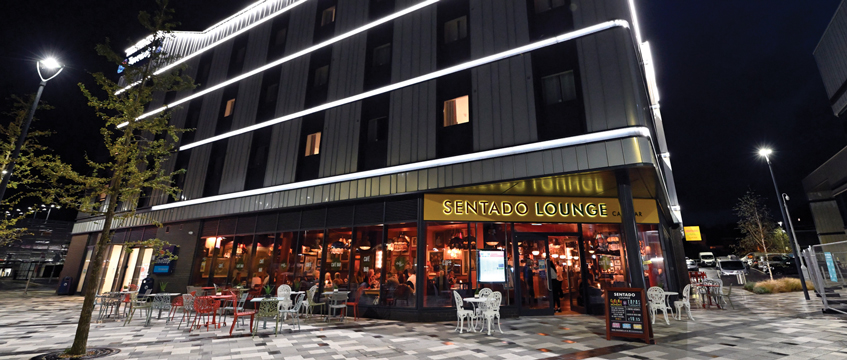How to spark revival on forgotten high streets
COMMENT Retail is on its last legs. Hospitality is dying. The high street is done. Familiar pronouncements in recent years have become even more urgent in 2020, with leisure now also included in the “end of days” narrative.
But hope lies around the corner: vaccines that could help us all move on from this pandemic are imminent and 2021 looks brighter as a result.
Nevertheless, enormous damage has already been wrought on urban centres. Certainly, with the full return of workers to offices delayed, and the country now in different tiers of restriction, city centres are going to continue to struggle and recovery will take time.
COMMENT Retail is on its last legs. Hospitality is dying. The high street is done. Familiar pronouncements in recent years have become even more urgent in 2020, with leisure now also included in the “end of days” narrative.
But hope lies around the corner: vaccines that could help us all move on from this pandemic are imminent and 2021 looks brighter as a result.
Nevertheless, enormous damage has already been wrought on urban centres. Certainly, with the full return of workers to offices delayed, and the country now in different tiers of restriction, city centres are going to continue to struggle and recovery will take time.
As specialists in regeneration, this is something U+I has always grappled with. How do you revive places that may be lost and forgotten, or have fallen behind? What’s very different, though, is that many of these places are now some of our most famous retail and leisure destinations.
There’s no magic formula to sparking revival, but one thing is clear: it requires creativity, imagination, bags of energy and a willingness to work closely with key partners and do things differently.
Balanced mix
Although central Manchester is suffering from the same city centre desertion as London, our outdoor Covid-secure hospitality and cultural venue at our Mayfield development, Escape to Freight Island, has proven a real success. A further £2m is being invested in extending the venue indoors, ready for Manchester’s emergence from tier 3.
Its success despite all the challenges is testament to the importance of communality: sharing experiences, simply enjoying the company of others and eating and drinking together are things we no longer take for granted.
Elsewhere, in many commuter belt towns and suburban high streets, footfall rebounded quickly after the first lockdown, and we expect it will again in the lead-up to Christmas. In the small and lovely Kent town of Sittingbourne, we have leased space to a number of hospitality operators, from established national businesses such as Travelodge and Nando’s to the Sentado Lounge (pictured), part of the expanding Lounges network, and The Light cinema and bowling alley.
There are two lessons to draw from this. Firstly, we must become more creative in the type of operators we seek if we want to revive places. We pour our energies into curating a retail and leisure offer that has a balanced mix – some national operators, with strong covenants, but also smaller operators and independent businesses.
What we find is that successful places need to have a sense of identity or character – that alchemy that just makes a place work. And part of that alchemy is having a unique and interesting leisure, hospitality and retail offer.
But to do this you have to be prepared at times to be creative about covenant strength and think about it differently – in that it comes through footfall. Smaller operators bring something different. They help us create places where people want to live, visit and spend time (and money), sparking the virtuous circle that can kick-start the revival of a high street, a neighbourhood or a whole town centre.
When bigger isn’t better
The second lesson is that places such as Deptford, Bromley, Hayes, Sittingbourne and other smaller high streets and town centres are doing so much better than big city centres, precisely because the commuters who usually leave those places during the week are now there, working from home.
Does that mean “the end of cities”? No. It means the imperative to create genuinely mixed-use places is now more urgent than ever. We must bring homes, workspaces, leisure, hospitality, retail, public realm and parks together in the same place in creative ways. That’s our vision for Mayfield: a genuinely mixed-use community built around Manchester’s first new park in 100 years.
Getting it right is not easy. But we believe it’s the only way you can deliver genuine regeneration that has a tangible impact on local economies, while also being commercially successful. And given the impact of the coronavirus pandemic, it’s something all of us in the property industry are going to have to grapple with, because we’re all in the regeneration business now.
Richard Upton is chief development officer at U+I
Images courtesy of U+I











